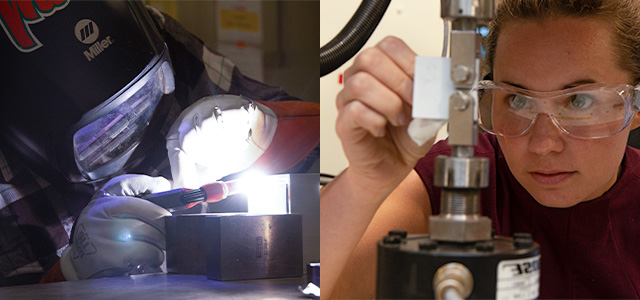
Careers at CLASSE
Check out what it is like to work at CLASSE.
For a complete listing of Cornell and CLASSE job openings, please go to Cornell Careers.Senior Mechanical Research Engineer (Research Support Specialist III)
Apply Here
Who are we?
The Cornell Laboratory for Accelerator-based ScienceS and Education (CLASSE) studies particle beams and accelerators, photon science, particle physics and the early universe, and serves students, the public and scientists from Cornell and around the world. The research missions of this laboratory are in many respects unique in the world.
We have an immediate opening for one or more Senior Mechanical Research Engineers.
What you will do:
The primary duties of the Senior Mechanical Research Engineer position are to independently guide the mechanical development of sophisticated scientific instruments and components. This includes:
- Collaborating with a variety of internal stakeholders (research scientists and technical staff), and external vendors and companies to engineer, create and implement equipment and solutions to help enable and advance research.
- Design analysis: perform sophisticated calculations regarding static loads, synchrotron radiation power levels, heat transfer and cooling requirements, etc. Use stress and thermal monitoring software (e.g., ANSYS) to validate design choices.
- Guiding the fabrication (internally or with vendors) of equipment, visiting vendors as needed.
- Participating directly in equipment installation and commissioning.
- Presenting designs at internal reviews and meetings. Assist in preparation of research papers, reports and articles for publication.
- Providing scoping and budget estimates for proposed projects and grant renewals. Mentoring students and junior engineers with regard to engineering projects.
